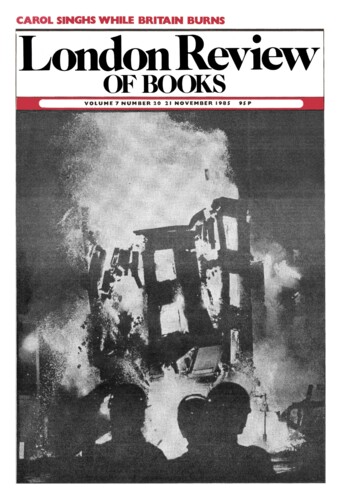Fear of Flying
Paul Kennedy, 21 November 1985
In the two decades before 1914 Englishmen probably worried more about the future and safety of their country and empire than they had done since Napoleon’s time. The cosy assumptions about British world supremacy which permeated the likes of Palmerston and Macaulay no longer seemed valid in a period of great international change. At sea, the supremacy of the Royal Navy was ever harder to maintain now that three, four, six foreign powers were building new battle fleets. The virtual monopoly of formal and informal rule which Britain had enjoyed in the overseas world since 1805 had been rudely destroyed during the recent ‘Scramble for Africa’, the expansion of Russia through Central Asia, and the rise of Japan and the USA in the Far East and Western Hemisphere respectively. The British Army, which had never been a large force, was now totally eclipsed in size by the mass-conscription, short-service armies of the post-1870 era. Economically, the ‘workshop of the world’ was also encountering problems, with British products being increasingly excluded by ever-higher foreign tariffs, whilst its own domestic and imperial markets were being penetrated by superior German and American wares. In such circumstances, an atmosphere of angst was easy to detect, particularly in Imperial circles, whose leading writers wondered how these external dangers would interact with the rising internal challenges posed by an extended franchise and an organised Labour movement.

